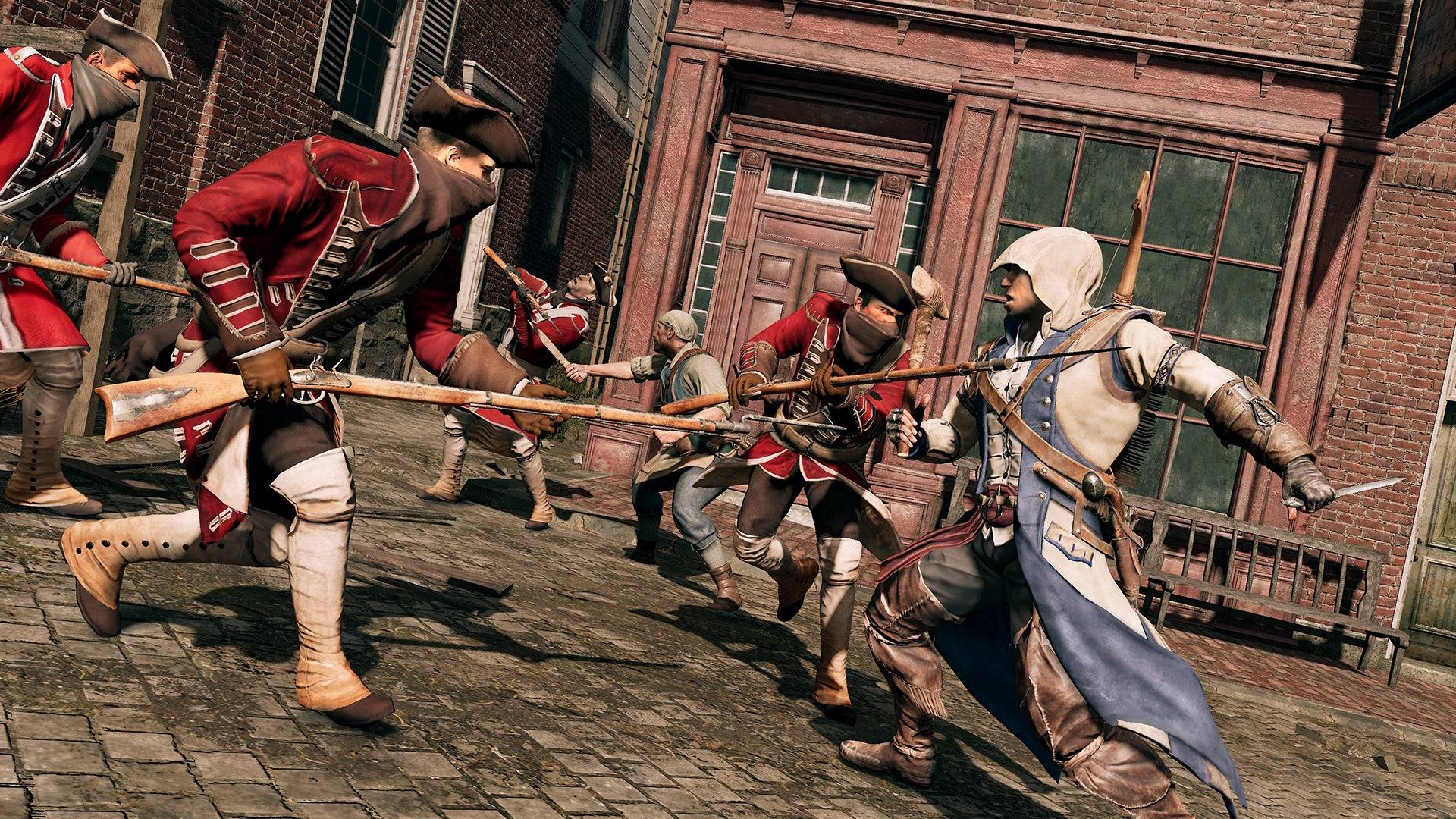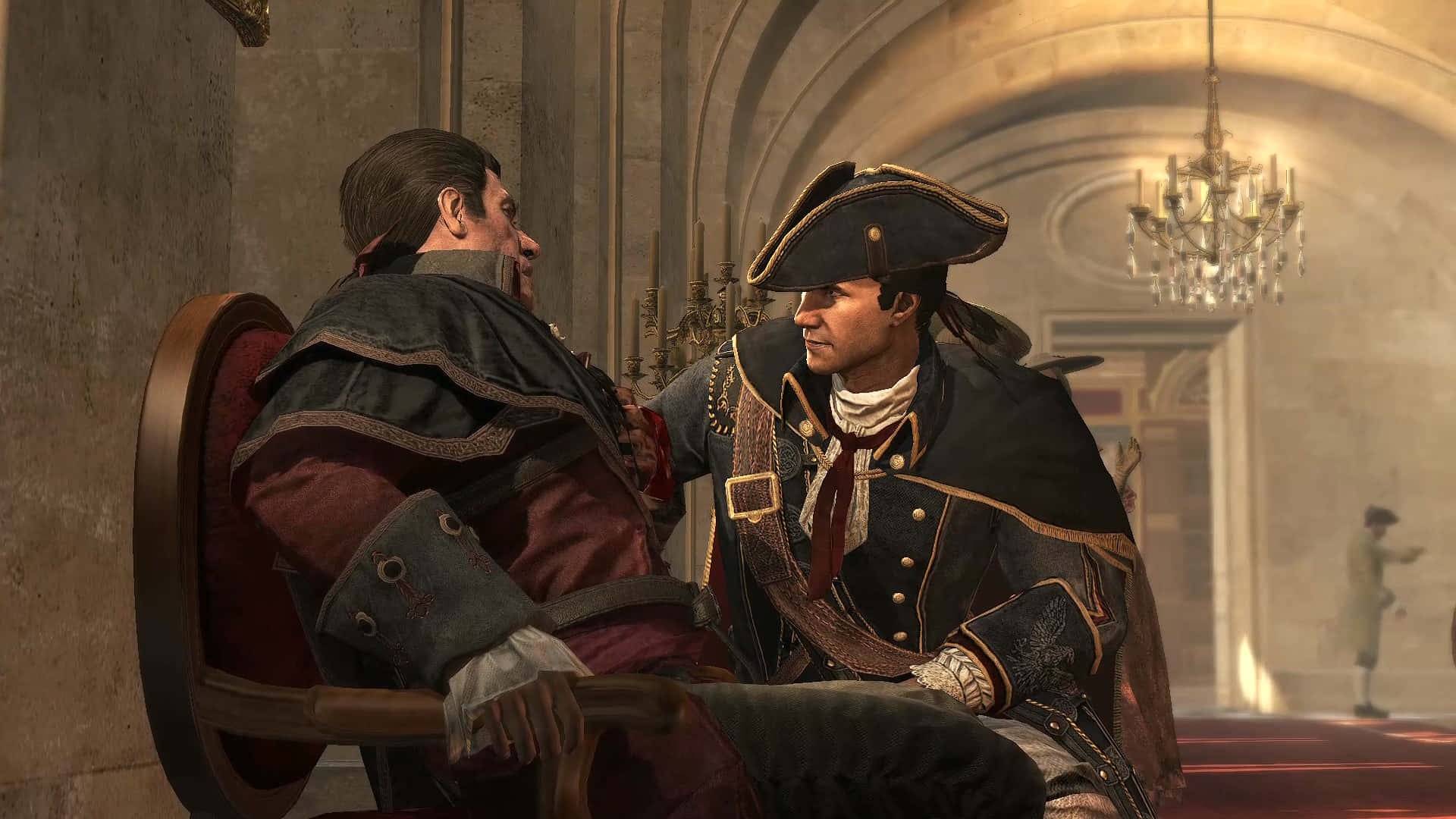One of the most iconic moments in the entire Assassin’s Creed series occurs early in Assassin’s Creed 3, when Haytham Kenway completes the task of assembling his group of supposed assassins in the New World. At first glance, Haytham seems to embody the qualities of a classic Assassin—his use of a hidden blade, his charisma reminiscent of Ezio Auditore, and his heroic actions such as liberating Native Americans and confronting British redcoats. However, the revelation comes when he utters the Templar creed, “May the Father of Understanding guide us,” making it clear that players have been unwittingly following a Templar all along.
This twist epitomizes the true potential of Assassin’s Creed. The original game introduced a fascinating concept of tracking and assassinating targets but struggled with a lackluster narrative and flat characters. Assassin’s Creed 2 improved this by introducing the charismatic Ezio, yet it still fell short in developing its antagonists, notably with the underdeveloped Cesare Borgia in Assassin’s Creed: Brotherhood. It was only with Assassin’s Creed 3, set against the backdrop of the American Revolution, that Ubisoft managed to craft a narrative where the depth of the hunted equaled that of the hunter. This balanced storytelling contributed to a seamless transition from setup to payoff, achieving a narrative and gameplay harmony that remains unmatched in later installments.

Despite the popularity of the RPG-focused modern entries, there is a consensus among players and critics that the Assassin’s Creed series has been on a downward trajectory. The reasons for this vary; some criticize the increasingly fantastical elements, such as battles against mythological figures like Anubis and Fenrir. Others debate the inclusion of diverse romance options or the shift to real historical figures like Yasuke in Assassin’s Creed Shadows. Personally, I believe the series' decline stems from its shift away from character-driven narratives, which have become overshadowed by the expansive open-world mechanics.
Over time, Assassin’s Creed has expanded its original action-adventure framework with RPG elements, including dialogue choices, XP systems, loot boxes, microtransactions, and gear customization. Yet, as the games have grown larger, they've also felt increasingly hollow. Not only do the repetitive side missions like climbing towers and collecting objects contribute to this feeling, but the core storytelling has also suffered. While a game like Assassin’s Creed Odyssey offers more content than Assassin’s Creed 2, much of it feels superficial and lacking in depth. The use of extensive dialogue trees and player-driven choices can dilute the narrative, making scripts longer and less polished than in games with more linear storytelling. The tightly written, character-focused scripts of the earlier action-adventure games allowed for more nuanced and engaging characters.
This shift has broken immersion, with interactions often feeling like you're dealing with generic NPCs rather than rich historical figures. This is a stark contrast to the PS3 and Xbox 360 era, which I believe produced some of the best writing in video games. From Ezio’s passionate speech after defeating Savonarola to the poignant monologue Haytham delivers when killed by his son Connor:
“Don't think I have any intention of caressing your cheek and saying I was wrong. I will not weep and wonder what might have been. I'm sure you understand. Still, I'm proud of you in a way. You have shown great conviction. Strength. Courage. All noble qualities. I should have killed you long ago.”

The writing in the series has also lost some of its moral complexity. Modern games often oversimplify the conflict into a clear-cut good versus evil narrative, while earlier games explored the blurred lines between Assassins and Templars. In Assassin’s Creed 3, each defeated Templar challenges Connor’s beliefs, with characters like William Johnson suggesting that the Templars could have prevented the Native American genocide, and Thomas Hickey questioning the feasibility of the Assassins’ mission. Benjamin Church further complicates the narrative by emphasizing perspective, while Haytham undermines Connor’s trust in George Washington, revealing the future despotism of the new nation. The revelation that it was Washington, not Charles Lee, who ordered the burning of Connor’s village adds depth and raises more questions than answers, ultimately strengthening the narrative.
Reflecting on the franchise’s history, the enduring appeal of the Jesper Kyd-composed track “Ezio’s Family” from Assassin’s Creed 2 as the series’ theme underscores the emotional resonance of those early games. The melancholic strings in “Ezio’s Family” were less about the Renaissance setting and more about Ezio’s personal loss. While I appreciate the expansive worldbuilding and advanced graphics of newer Assassin’s Creed titles, I hope the series can return to its roots, delivering focused, character-driven stories that initially captivated fans. Unfortunately, in today’s market dominated by vast open worlds and live service models, such a return might not align with current business strategies.

 Latest Downloads
Latest Downloads
 Downlaod
Downlaod




 Top News
Top News








